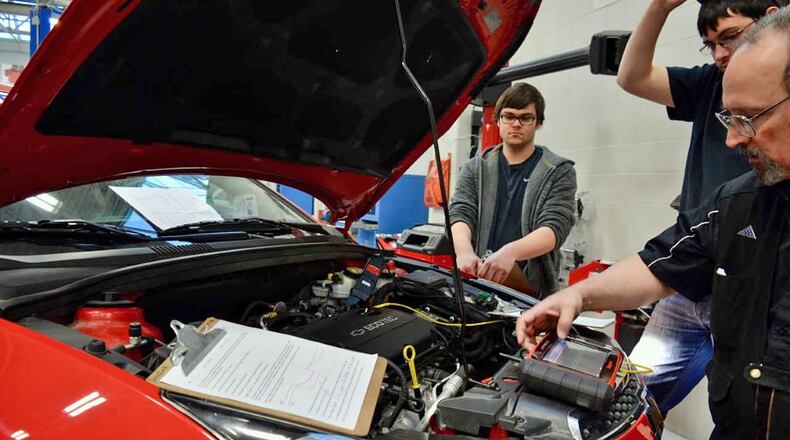“We will host our first of three summer professional development conferences here at Sinclair Community College July 30 through Aug. 3,” Morgan said. “The grant has funds earmarked for the purchase of a Cadillac Super Cruise and other vehicles with advanced safety systems to utilize at training vehicles.
“Currently, General Motors, Fiat-Chrysler, American Honda and Toyota have all agreed to present at the first conference, with discussions occurring as we speak with other vehicle manufacturers,” he added. “The goal of the project is to increase the autonomous vehicle technology experience and knowledge of automotive technology educators throughout the nation and address the growing need for qualified, knowledgeable technicians with capacity to maintain and repair autonomous vehicles.”
The grant will allow Sinclair to train up to 120 instructors from other schools during the next three years on the advanced systems, and then take that information back to their labs and classes and train the students as this technology becomes more prevalent.
Morgan has some interesting thoughts on buying and servicing cars in the future.
“I believe the way we purchase cars will change. In the future you will pay for a subscription of the vehicle, and price will depend on the amenities the vehicle offers,” Morgan explained. “As far as the service side, with the liability involved with accidents with future fully autonomous vehicles, I see these vehicles self-diagnosing themselves and driving themselves to the repair facility for service when needed.
“If a tie rod end is loose,” he continued, “I foresee the vehicle driving itself to be serviced to make sure the customers utilizing that vehicle are safe and the company is not liable.”
Sinclair’s current program has about 120 full-time students, and the current challenge is providing enough entry-level techs to the industry.
“I get an email or call each day about a service repair facility needing a technician,” Morgan said.
Sinclair partners with General Motors, Fiat-Chrysler Automobiles and American Honda to provide them with entry-level automotive service technicians at their dealerships.
These students “earn while they learn” by rotating class and work every eight weeks, and receive college credit for their work experience. In exchange the partners provide a fleet of 15 to 20 late-model vehicles, components, scan tools and dealer special tools to ensure students are ready when they go to the dealership to work.
To learn more about Sinclair Community College Auto Technology programs, go online to: http://www.sinclair.edu/academics/divisions/sme/aut/ or call Morgan at 937-512-3242.
About the Author
